Children’s Vision
ACO Eye Health provides comprehensive eye care for children aged 0-17 years.
All Medicare eligible consultations are bulk billed for children.
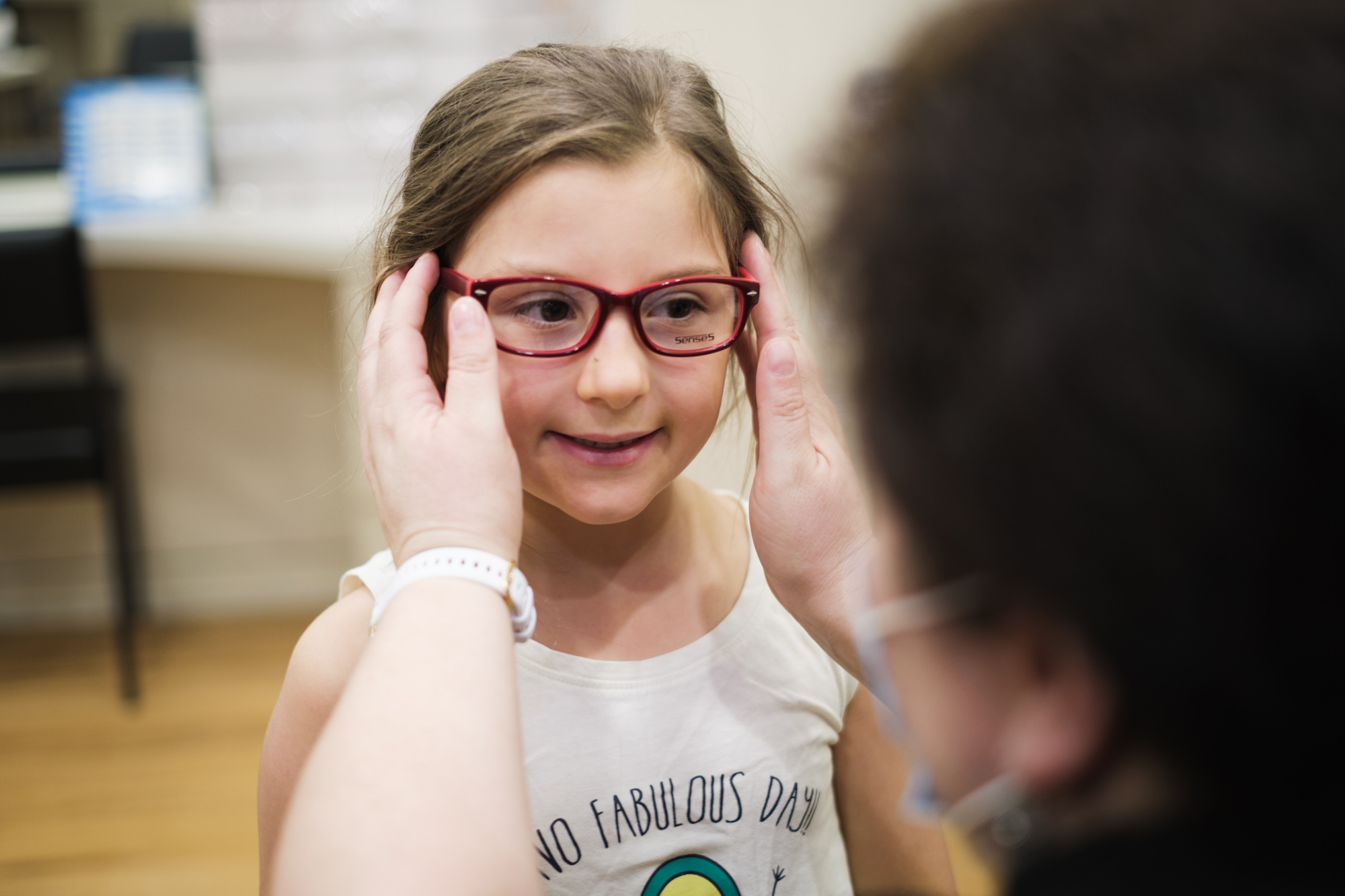
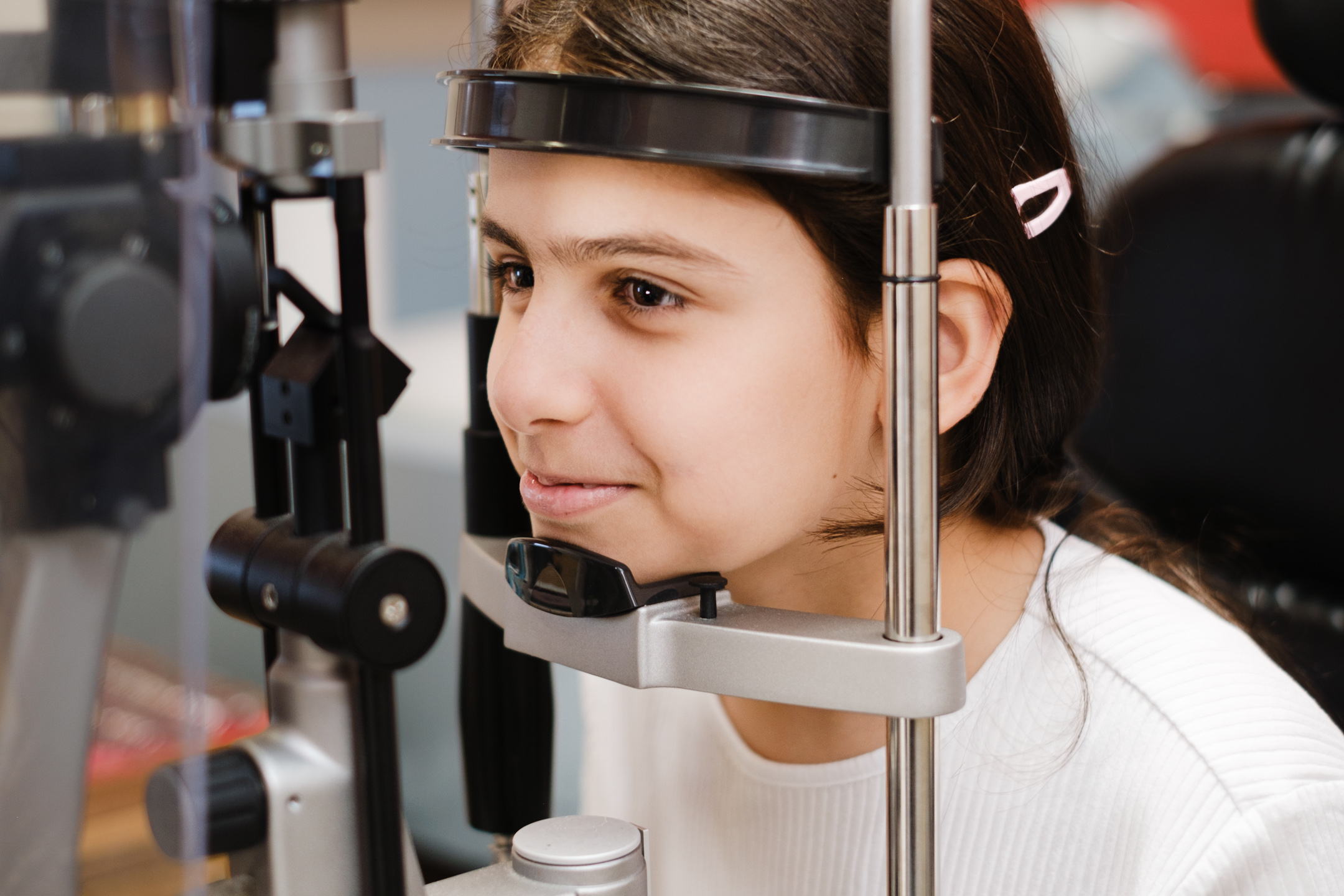
Importance of eye testing
Eye disorders are the most common long-term health issues experienced by children. Early detection is essential for intervention and correction. Children may not realise they have an eye problem or report blurry vision.
All Medicare-eligible consultations for children under 18 years are bulk billed. This includes services provided at all ACO Eye Health locations, our advanced Myopia and Binocular Vision services, and our dedicated Children’s Clinic located within ACO Eye Health Carlton.
Signs that can indicate a vision problem
Children may report blurred or double vision, sore or tired eyes, headaches or words moving on the page. Other signs include:
Blurred or double vision
Sore or tired eyes
Headaches
Eye rubbing
Squinting
Sitting too close to things (such as TV)
Holding a book very close
Difficulty reading
Night vision problems
One or both eyes look different or abnormal
Tilting the head
When to get your child’s eyes tested
- Children should have a full eye test with an optometrist before starting school
- At regular intervals throughout school life
- If there is a family history of eye conditions
- If they notice a change in their vision or you think there is an issue.
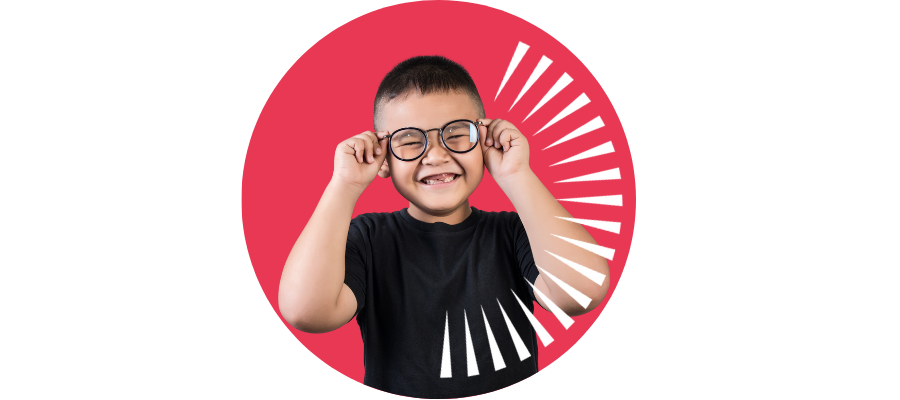
Our children’s vision services
Our team has extensive knowledge in all areas of children’s vision problems, providing general and advanced children’s eye care. Our eye exams include assessment and advice on:
- Visual aids (glasses or contact lenses)
- Diagnosis and management of turned or lazy eyes
- Binocular vision
- Myopia control
- Complete eye health
ACO Eye Health’s dedicated children’s clinic, based at our Carlton location, also offers advanced care for children with additional needs or requiring complex assessments.
Almost all ACO Eye Health appointments are bulk billed for children under the age of 18. Select services such as visual perception skill testing and contact lens fittings are not bulk billed.
Find your local ACO Eye Health clinic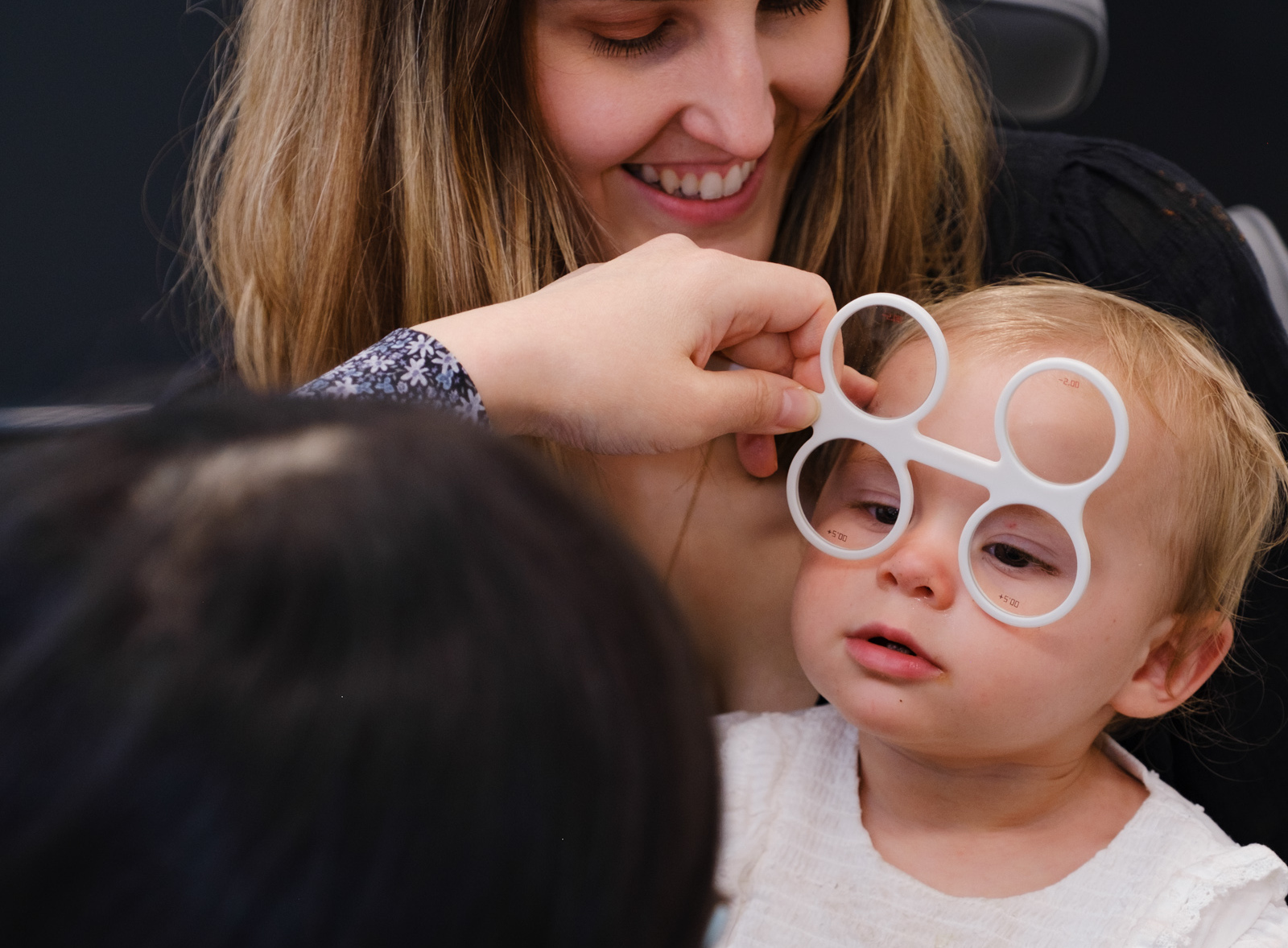
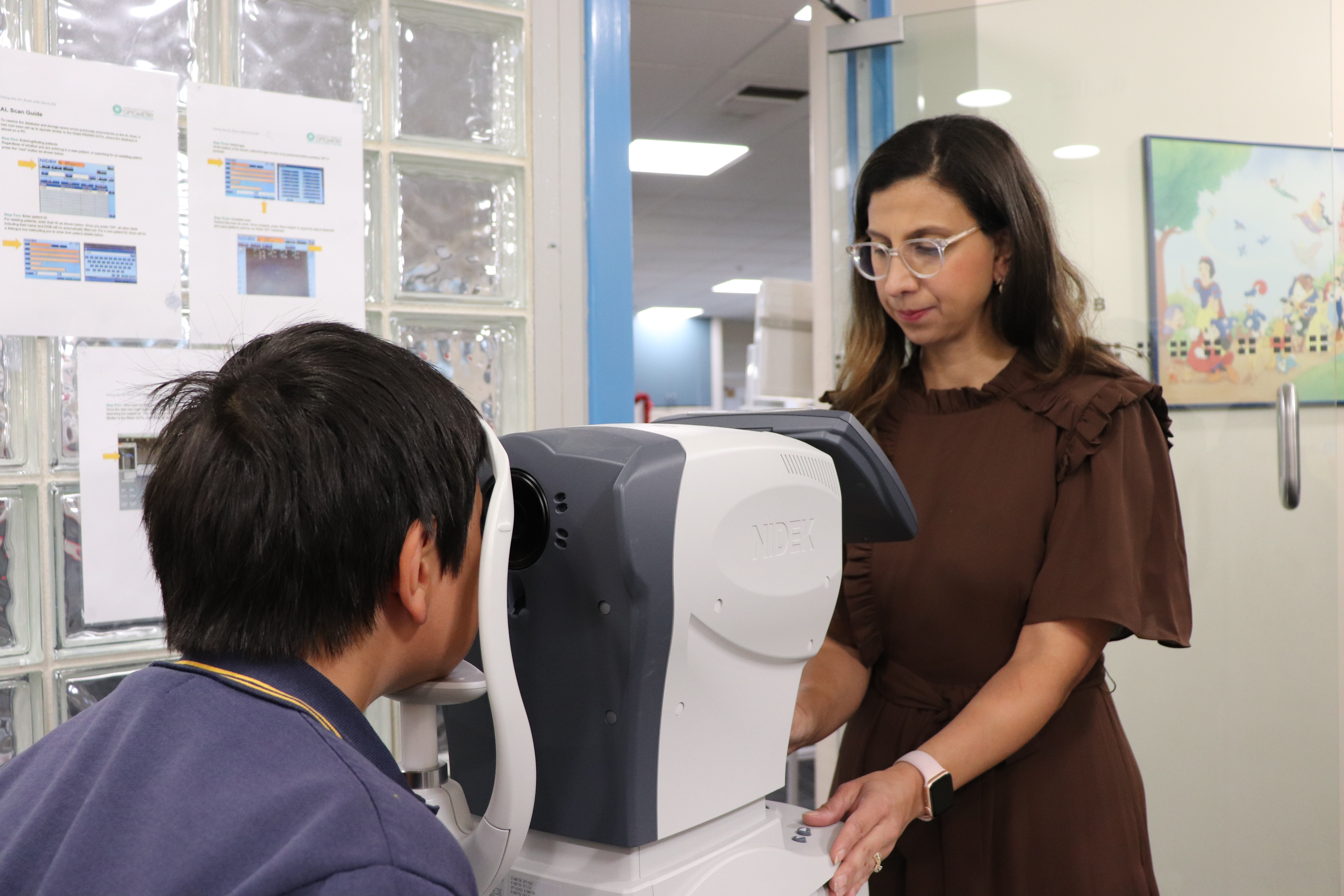
Myopia
Myopia (short-sightedness) occurs when the eyeball grows too quickly during childhood. Myopia is increasingly common, affecting approximately 1 in 5 children, and can pose a significant risk to vision later in life. Early intervention is essential to protect a child’s eye health. ACO Eye Health follows the latest research and provides personalised treatment to best support each child’s needs.
ACO Eye Health offers an advanced myopia services at our Carlton, Hume and Knox locations. General myopia services are available at all locations.
Learn about our advanced Myopia ClinicVision training
We provide evidence-based treatment plans for visual disorders that can be managed with vision training. In children, this includes conditions affecting binocular vision, convergence, and accommodative systems.
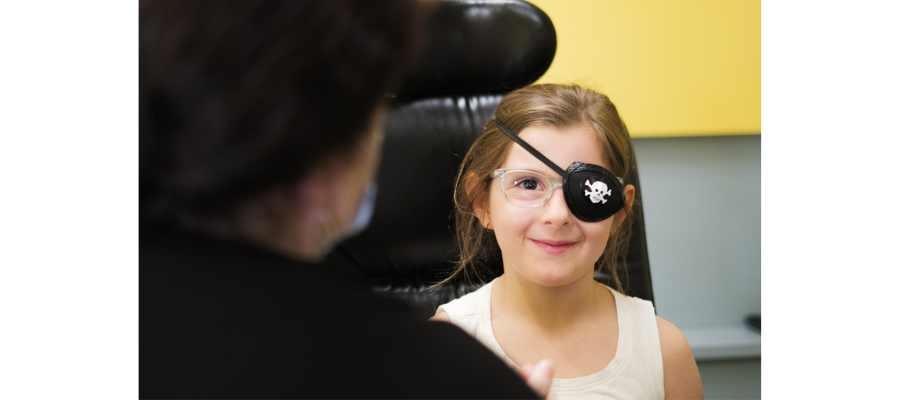
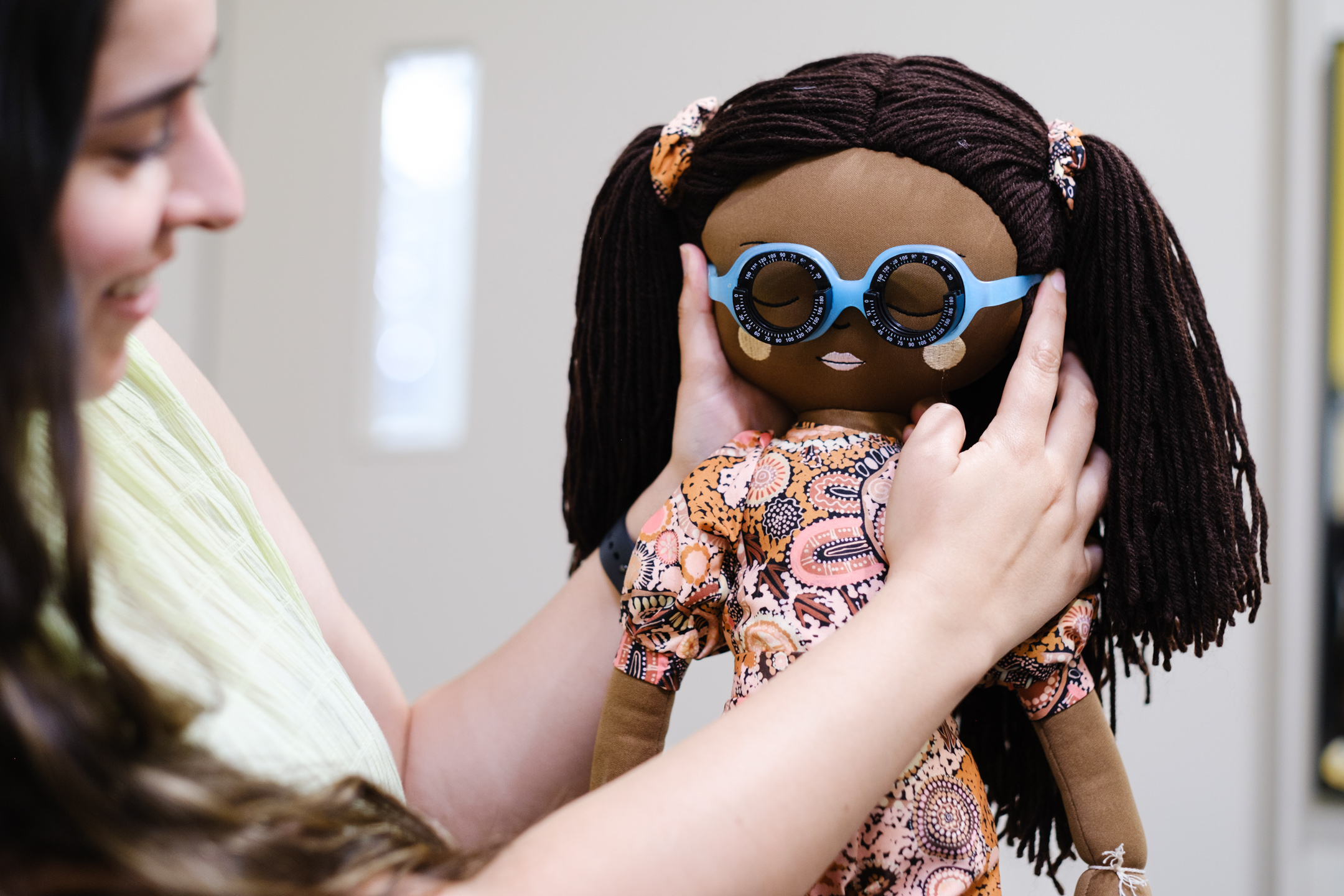
Specialised Children's Clinic
At ACO Eye Health Carlton, our specialised Children’s Clinic provides advanced, compassionate eye care for children with additional needs, including neurodivergent children. We recognise that children with neurodevelopmental conditions often face unique visual and sensory challenges, and our clinic is designed to meet those needs with expertise and care.
Children with Autism Spectrum Disorder (ASD) and other neurodiverse conditions experience significantly higher rates of vision problems compared to neurotypical children. Studies show that up to 40–60% of children with ASD have some form of visual abnormality. These can include:
- Strabismus (eye turn)
- Refractive errors such as myopia (short-sightedness), hyperopia (long-sightedness), and astigmatism
- Ocular motor dysfunction (difficulty with tracking or coordinating eye movements)
- Sensory sensitivities to light or visual stimuli
Our paediatric optometrists are experienced in working with children with autism, down syndrome, cerebral palsy, non-verbal learning disorder, and other neurodevelopmental differences. We use the latest diagnostic technology and evidence-based treatment options, and we take a neurodiverse-friendly approach that prioritises comfort, communication, and trust.
Appointments are tailored to each child’s specific needs and include adjustments in pace, setting, and interaction style. Our goal is to create a safe, supportive environment where every child can receive the high-quality eye care they deserve.
A short social story on “seeing the optometrist” is available to families upon request.


